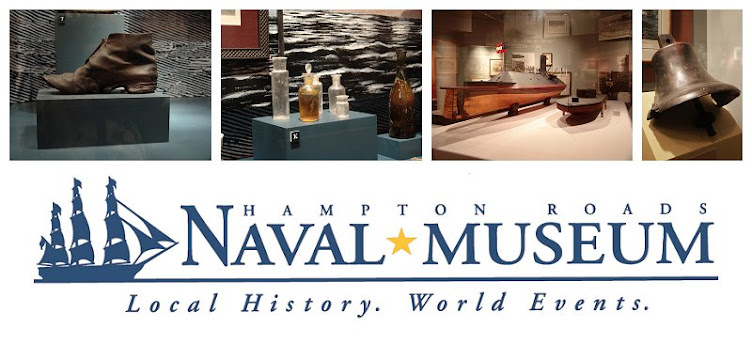For much of the early 19th century, dueling was considered in some parts of the United States a civilized way to settle disputes. While there were formal rules for duels (see Lorenzo Sabine's 1855 work entitled Notes on Duels and Dueling), the duelers' "seconds" would work out house rules for each particular duel ahead of time. This led to some unintended outcomes.
Three such duels with unintended outcomes took place in Norfolk. The background to the duels centered around the 1807 Chesapeake-Leopard Affair. They occurred between officers of the frigate Chesapeake and friends of Commodore James Barron, the man largely blamed for letting HMS Leopard fire on Chesapeake. The first occurred between two of Chesapeake's midshipmen who both thought the other acted improperly during the incident. The second and third involved Master Commandant Charles Gordon, Chesapeake's acting commanding officer during the incident, and two of Barron's friends. Historian Charles Oscar Pullian picks up the story from here:
"These duels, which took place in the early fall of 1807, grew out of disputes over the fight between the Chesapeake and Leopard. Broome, Crump, and Gordon were officers of the ill-fated Chesapeake, and Stark and M'Connico were citizens of Norfolk, and relatives or friends of the captain of the Chesapeake, James Barron. In the Broome-Crump duel, Broome received a flesh wound in the thigh. The Gordon-Stark duel arose from certain remarks made by Stark reflecting on Gordon's conduct during the fight.
In the preliminary arrangements, it was stipulated that should one of the principals fire too soon, the second of the other might shoot him. After six shots had been exchanged, the word for the seventh was given. Stark fired prematurely, so Lieutenant W. H. Crane, the second of Gordon claimed, who, in accordance with the stipulation, shot at the doctor, wounding him in the arm. Stark's second, A. J. M'Connico, denied that his principal had fired improperly. This contention was duly settled by Gordon and M'Connico. Both were wounded, but not dangerously."
Three such duels with unintended outcomes took place in Norfolk. The background to the duels centered around the 1807 Chesapeake-Leopard Affair. They occurred between officers of the frigate Chesapeake and friends of Commodore James Barron, the man largely blamed for letting HMS Leopard fire on Chesapeake. The first occurred between two of Chesapeake's midshipmen who both thought the other acted improperly during the incident. The second and third involved Master Commandant Charles Gordon, Chesapeake's acting commanding officer during the incident, and two of Barron's friends. Historian Charles Oscar Pullian picks up the story from here:
"These duels, which took place in the early fall of 1807, grew out of disputes over the fight between the Chesapeake and Leopard. Broome, Crump, and Gordon were officers of the ill-fated Chesapeake, and Stark and M'Connico were citizens of Norfolk, and relatives or friends of the captain of the Chesapeake, James Barron. In the Broome-Crump duel, Broome received a flesh wound in the thigh. The Gordon-Stark duel arose from certain remarks made by Stark reflecting on Gordon's conduct during the fight.
In the preliminary arrangements, it was stipulated that should one of the principals fire too soon, the second of the other might shoot him. After six shots had been exchanged, the word for the seventh was given. Stark fired prematurely, so Lieutenant W. H. Crane, the second of Gordon claimed, who, in accordance with the stipulation, shot at the doctor, wounding him in the arm. Stark's second, A. J. M'Connico, denied that his principal had fired improperly. This contention was duly settled by Gordon and M'Connico. Both were wounded, but not dangerously."



No comments:
Post a Comment